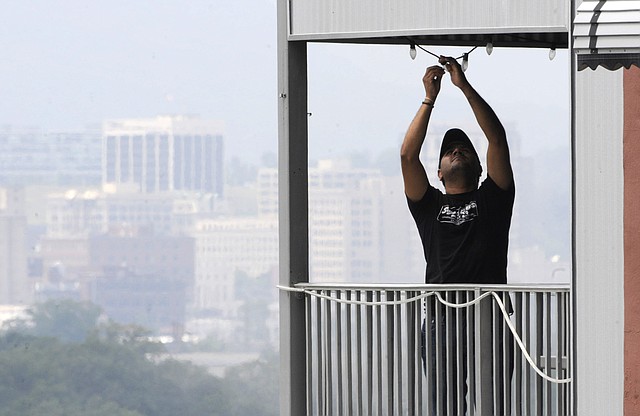Air pollution explodes, but Chattanooga gets passing grade
Thursday, July 7, 2011
The fireworks may have been pretty over the long Fourth of July weekend, but if you've nursed a cough and the sniffles since the big bangs, you might just think of it as celebration hangover.
Weather blogs in Seattle, Utah, Nevada, California, Nebraska, Wisconsin and even China in this and previous years have linked fireworks displays with spikes in air pollution.
Wisconsin has even warned residents of potential health problems from the smoky and smoggy air after the pyrotechnic displays. And the Cliff Mass Weather Blog in Seattle, written by University of Washington professor and climatologist Cliff Mass, calls the bad air effect "FIAP - Fireworks Induced Air Pollution."
The Cliff Mass blog demonstrated the impact of fireworks' smoke and blast particles with five-day air trends from seven cities in the Puget Sound area. All five, charted by the Puget Sound Clean Air Agency, showed a spike into moderate to unhealthy levels of particulate matter in the afternoon hours of July 4.
Locally, officials with the Chattanooga Air Pollution Control Bureau said they can't say yet if fireworks clouded air monitors as much as they clouded the vistas.
"I don't have any readings for Sunday or Monday. There was an instrument malfunction," said Amber McCorvie Boles, spokeswoman for the Chattanooga-Hamilton County Air Pollution Control Bureau.
"The last thing I have was for Saturday, and it [the readings] peaked ... in moderate range," she said. "It is more likely that the hot, humid weather and higher traffic counts on the interstate would have a greater impact."
But even if the monitors did find harmful levels of fine particulate - dust, soot or smoke containing microscopic solids or liquid droplets that can get deep into the lungs - the city would get a pass from the U.S. Environmental Protection Agency, which monitors air quality nationwide.
EPA spokeswoman Dawn Harris-Young said the agency recognizes that there may be air quality impacts associated with fireworks displays, but cities are given a pass for "exceptional events" so the bad air won't count against a region's effort to maintain federal air quality control standards.
"One of the criteria for exclusion is that the fireworks display must be linked to a cultural celebration, such as July Fourth, and not just be someone setting off fireworks in a neighborhood," she said.
Particle pollution and ground ozone - which comes primarily from vehicle and power plant emissions - contribute to smog.
Tisha Calabrese-Benton, spokeswoman for the Tennessee Department of Environment and Conservation, said Chattanooga this year has had three ozone readings in excess of the standard but no fine particulate matter excesses.
Last year, there were seven ozone readings that exceeded the standard, three of them occurring through July 5. There were no fine particulate excesses last year, she said.
